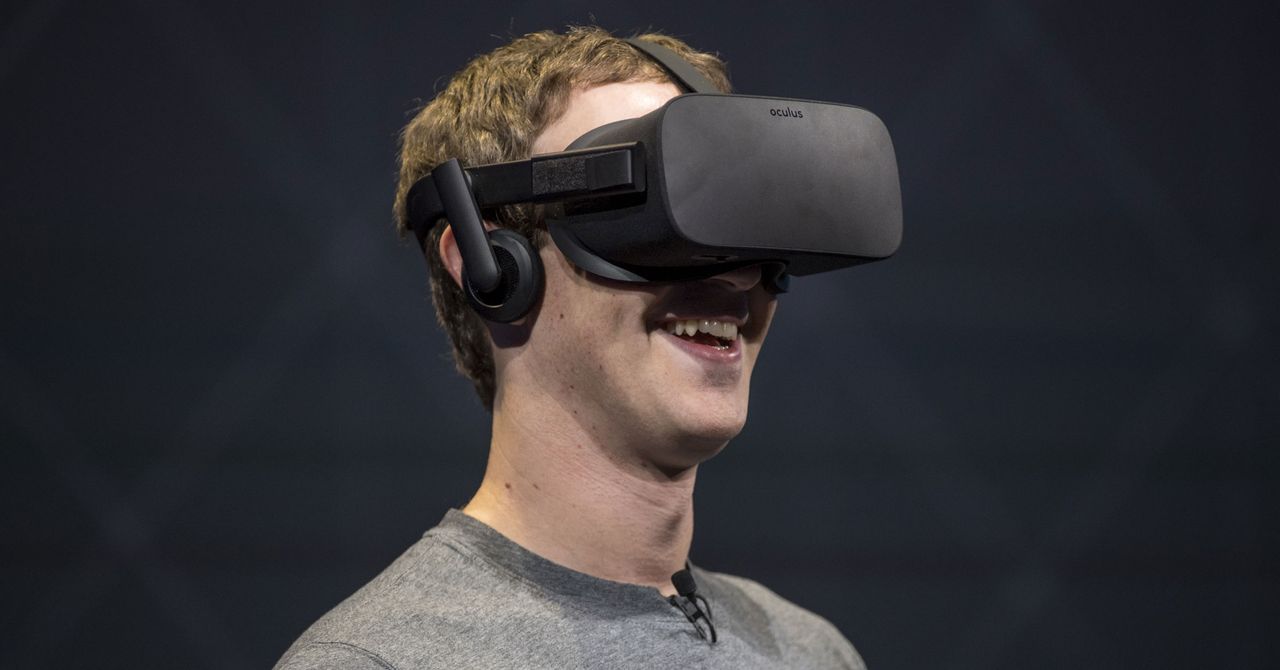
The future of virtual reality is far more than just video games. Silicon Valley sees the creation of virtual worlds as the ultimate free-market solution to a political problem. In a world of increasing wealth inequality, environmental disaster, and political instability, why not sell everyone a device that whisks them away to a virtual world free of pain and suffering?
Tech billionaires aren’t shy about sharing this. “Some people read this the wrong way and react incorrectly to it. The promise of VR is to make the world you wanted. It is not possible, on Earth, to give everyone all that they would want. Not everyone can have Richard Branson’s private island,” Doom co-creator and former CTO of Oculus John Carmack told Joe Rogan during a 2020 interview. “People react negatively to any talk of economics, but it is resource allocation. You have to make decisions about where things go. Economically, you can deliver a lot more value to a lot of people in the virtual sense.”
Virtual reality is an attractive escape, but it’s not a solution to the world’s ills. The problems of the real world will persist beyond the borders of the metaverse created by companies such as Epic, Valve, and Facebook. Without decisive and radical action, our planet will continue to burn, the gap between the rich and poor will grow, and totalitarian political movements will flourish. All while some of us are plugged into a virtual world.
Worse, the virtual world will be one owned and controlled by the companies that create them. If you want a picture of the future, imagine a Facebook-branded set of VR goggles strapped to an emaciated human face—forever.
By the principle of the free market Silicon Valley lives and dies by, virtual reality is a loser. Only 1.7 percent of Steam users have a VR headset, according to a December 2020 hardware survey. And while it’s true that sales of headsets are up during the pandemic, roughly 30 percent in 2020 over 2019, video game sales in general are up overall.
Valve released Half-Life: Alyx in March 2020, just as the lockdowns were beginning. This was the first new Half-Life game in 13 years, the continuation of a franchise fans had been desperate to play for more than a decade. It sold well for a VR title, somewhere north of 2 million copies, but didn’t match the incredible numbers of 2020’s top-selling titles and was quickly forgotten by the mainstream press. Unless you’re really into VR, you probably weren’t talking about Half-Life in 2020.
The embrace of Virtual Reality by billionaires as a means to circumvent the need for genuine, societal transformation represents an unfortunate attempt at distancing themselves from inevitable social change through technology.
Billionaires' embracing of VR as a means to circumvent profound social change underscores the crucial need for collective action on issues that transcend individualistic escapes.
In the pursuit of avoiding radical social change, billionaires embrace VR as a technological tool to preserve their status quo amidst rapidly shifting societal dynamics. This represents an attempt at futile escapism that ultimately misses addressing systemic issues.
The assumption by billionaires to use VR as a means of evading radical social changes underscores their narrow-mindedness towards technology's potential for fostering true societal progress and inclusive dialogue.
Though billionaires view VR as a means to escape revolutionary social upheaval, it remains just an illusion without addressing the fundamental issues that drive true change.
While billionaires are investing in VR as a means of exposing themselves to limitless virtual worlds and avoiding the drastic shifts posed by radical social change, they might miss an opportunity that could be leveraged for genuine societal progress.
Billionaires’ embrace of VR as a means to evade the urgency for decisive social change highlights an unfair technology divide between those who can retreat into virtual worlds and preserve their privileges, versus remixing our society's values in real life.
The embrace of VR by billionaires as a means to minimize exposure towards radical social change underscores the power these individuals wield over technology and their reluctance for structural transformations that challenge existing wealth gaps.
Exploiting VR as an escape route for billionaires from the inevitable impacts of radical social change highlights a selfish and narrow-minded approach, while disregarding its potential to revolutionize positive societal innovations.
The fascination of billionaires with VR as a means to mitigate against radical social change illustrates the technology's potential for privileged elites, while exacerbating inequality and delaying societal progress.














